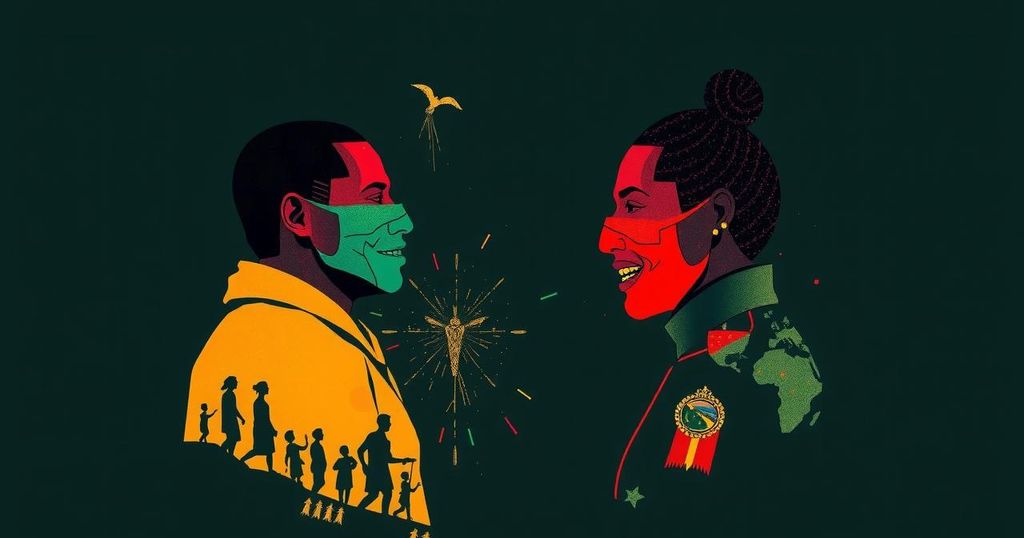Mozambique has faced significant civil conflict between Frelimo and Renamo, culminating in a fragile peace reached in the 1990s. Despite economic growth from natural resources, issues such as persistent poverty and political tensions have led to further unrest, notably Renamo’s recent insurgencies. Upcoming elections in 2024 are critical to the nation’s political and economic future, amid allegations of electoral misconduct and ongoing socio-political challenges.
Mozambique’s journey towards peace, reconciliation, and political stability has been tumultuous, shaped notably by its civil war between Frelimo and Renamo which lasted for over a decade. The pivotal multiparty elections of October 1994 marked a significant turning point, as Frelimo transitioned from a one-party Marxist-Leninist framework into a more democratic entity. The adoption of a new constitution and subsequent elections allowed for Renamo to shed its prior image as a violent guerrilla force, legitimizing its status as a political party. Although economic growth surged due to natural resources, poverty persisted, leading Renamo to launch a low-level insurgency in response to perceived political marginalization.
The political landscape continued to evolve, particularly after the 2014 elections when internal tensions resurfaced, resulting in temporary ceasefires and continual peace negotiations. However, Renamo’s dissatisfaction with electoral processes culminated in legal challenges, reflecting an enduring struggle for political equity. After a series of storms in 2019, the nation faced another setback despite ongoing discussions of revitalizing economic infrastructures. The ensuing elections in 2019 led to further controversy, marked by accusations of misconduct and electoral fraud, thus perpetuating a cycle of discontent between the government and its opposition.
As of October 2024, with new candidates emerging amidst allegations of electoral irregularities, Mozambique continues to navigate a complex socio-political terrain, impacted significantly by a recent insurgency in the north associated with extremist factions. Therefore, the upcoming elections hold substantial stakes in determining the nation’s trajectory towards a sustainable peace and a balanced socio-economic recovery.
Understanding Mozambique’s civil conflict requires examining its colonial past and the subsequent struggles of its independence. The protracted civil war (1977-1992) was a struggle between Frelimo—its ruling party, and Renamo—its opposition. After achieving a fragile peace, the nation adopted significant reforms leading to its multiparty elections in the late 20th century, with Frelimo reorienting its identity while Renamo sought legitimacy. Post-war challenges, including economic disparities and natural disasters, laid the groundwork for ongoing conflict and instabilities, particularly evident in subsequent elections that raised questions about legitimacy and governance.
In conclusion, Mozambique’s political narrative is characterized by a continuous quest for peace, economic stability, and legitimate governance. Despite considerable growth prospects, systemic issues such as poverty and political dissent remain prevalent. The interactions between major parties, notably Frelimo and Renamo, alongside the emergence of newer political entities highlight the complexity of Mozambican politics as it stands on the threshold of transformative elections. Consequently, achieving long-lasting peace and equitable governance will require sustained dialogue, transparent electoral processes, and comprehensive policy reforms.
Original Source: www.britannica.com







